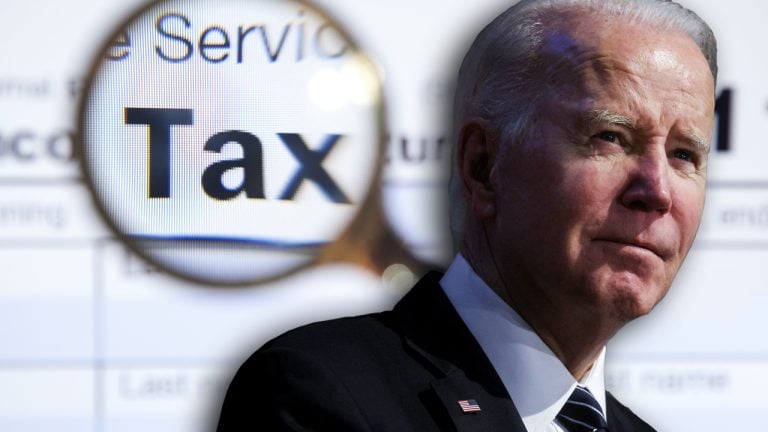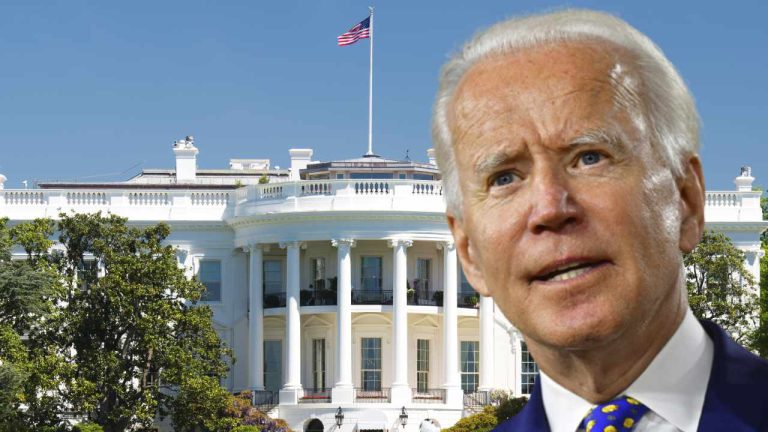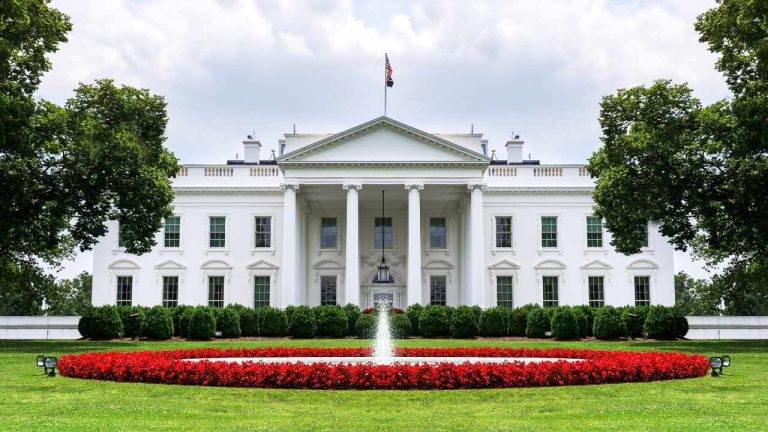 On Thursday, the Biden administration released the U.S. president’s 182-page budget proposal for the fiscal year 2024, which aims to “grow the economy from the bottom up and middle out.” The budget includes an $835 billion increase in military spending, but the administration claims it will reduce the deficit by $3 trillion over the next […]
On Thursday, the Biden administration released the U.S. president’s 182-page budget proposal for the fiscal year 2024, which aims to “grow the economy from the bottom up and middle out.” The budget includes an $835 billion increase in military spending, but the administration claims it will reduce the deficit by $3 trillion over the next […]
The spokeswoman said that she won’t be commenting specifically on Silvergate, but the White House will be actively monitoring the situation.
The Biden Administration is “aware of the situation” at Silvergate and will continue to monitor reports on the troubled bank as it unfolds, according to a White House spokesperson.
Speaking at a press briefing on March 6, Press Secretary Karine Jean-Pierre said the White House has noted that Silvergate marked another major crypto firm to "experience significant issues" in recent months, but declined to go into any further specifics on the firm.
"In recent weeks banking regulators have released guidelines on how banks should protect themselves from risks associated with crypto," she said, adding that:
"This is a president that has repeatedly called on Congress to take action to protect everyday Americans from the risk posted by digital assets and he will continue to do so. We won’t speak to this particular company as we have not with other cryptocurrency companies, but we will continue to monitor the reports."
Silvergate, known as a “crypto bank” was a key banking partner to a number of major crypto companies and projects.
However, uncertainty over the bank’s solvency began to spread at the start of March, after Silvergate delayed the filing of its annual 10-K report by two weeks. A 10-K report is a legally required document that provides a comprehensive overview of a company’s business and financial condition.
On the back of that news, Coinbase announced on March 2 that it had terminated its partnership with Silvergate, as the crypto exchange also alluded to concerns over the Department of Justice’s investigation into the firm over involvement in the FTX collapse.
At Coinbase all client funds continue to be safe, accessible & available.
— Coinbase (@coinbase) March 2, 2023
In light of recent developments & out of an abundance of caution, Coinbase is no longer accepting or initiating payments to or from Silvergate.
Several crypto heavyweights promptly followed suit by either cutting ties or distancing themselves from the bank, including Circle, Paxos, Bitstamp, Galaxy, MicroStrategy and Tether to name a few.
On March 4, Silvergate also announced that it was shutting down its digital asset payment network Silvergate Exchange Network due to “risk-based” concerns, sparking further uncertainty over the firm’s financials.
Related: Investor concerns persist as crypto investment products see 4th week of outflows
As a result, Silvergate's stock price (SI) has plummeted roughly 60% since Mar. 1, while the total combined market cap of crypto has dropped around 5.5% to $1.072 trillion in that same time frame.
Speaking with CNBC on March. 6, economist and author of the Crypto is Macro Now newsletter Noelle Acheson, suggested that if Silverbank were to file for bankruptcy, it could give regulators a far greater excuse to clamp down on crypto than before, given the bank’s ties to traditional finance.
“Up until now we’ve been able to say that the fallout of everything that happened last year was contained within the crypto industry – painful, but contained,” said Acheson, adding that:
“If Silvergate goes under then the regulators will be able to say ‘aha, systemic risk, we told you so.’ That will give them even more ammunition to go after crypto and increase their choke on fiat access for crypto businesses.”
 After the disgraced co-founder of FTX, Sam Bankman-Fried (SBF), donated $5.2 million to Joe Biden’s campaign in 2020 and more than $40 million to Democrats leading up to the U.S. midterm election cycle, three major Democratic organizations plan to return 2.2% of the funds, or $1 million, to the now-defunct crypto exchange. Of the total […]
After the disgraced co-founder of FTX, Sam Bankman-Fried (SBF), donated $5.2 million to Joe Biden’s campaign in 2020 and more than $40 million to Democrats leading up to the U.S. midterm election cycle, three major Democratic organizations plan to return 2.2% of the funds, or $1 million, to the now-defunct crypto exchange. Of the total […] Caitlin Long, CEO of crypto bank Custodia, criticized the U.S. government for its handling of a massive crypto fraud that occurred months before the company’s collapse. She made her remarks in a blog post after disclosing evidence to law enforcement. Long’s post followed Custodia’s unsuccessful application to become a member of the Federal Reserve System, […]
Caitlin Long, CEO of crypto bank Custodia, criticized the U.S. government for its handling of a massive crypto fraud that occurred months before the company’s collapse. She made her remarks in a blog post after disclosing evidence to law enforcement. Long’s post followed Custodia’s unsuccessful application to become a member of the Federal Reserve System, […]
The Biden Administration has revealed a roadmap that it plans on using to tackle the various risks associated with the proliferation of cryptocurrencies and digital assets. In a new announcement, Biden’s officials say they have spent the “past year identifying the risks of cryptocurrencies and acting to mitigate them using the authorities that the Executive […]
The post White House Releases Roadmap on Biden Administration’s Plans To Tackle Crypto Risks appeared first on The Daily Hodl.
 The White House has published a “roadmap to mitigate cryptocurrencies’ risks.” The roadmap calls for authorities to “ramp up enforcement where appropriate” and Congress “to step up its efforts” to regulate the crypto sector. It also notes that legislation should not greenlight mainstream institutions “to dive headlong into cryptocurrency markets.” ‘The Administration’s Roadmap to Mitigate […]
The White House has published a “roadmap to mitigate cryptocurrencies’ risks.” The roadmap calls for authorities to “ramp up enforcement where appropriate” and Congress “to step up its efforts” to regulate the crypto sector. It also notes that legislation should not greenlight mainstream institutions “to dive headlong into cryptocurrency markets.” ‘The Administration’s Roadmap to Mitigate […]
The Biden Administration is asking the public how they feel about digital assets and blockchain technology as a means of forming upcoming crypto policies. In a new government document, The White House’s Office of Science and Technology Policy (OSTP) is asking for the public’s help in identifying key areas of the crypto industry that need […]
The post White House Asks for Public Comments on Crypto Assets, Blockchain Technology and Decentralized Finance appeared first on The Daily Hodl.

The Biden administration touted its comprehensive framework and encouraged regulators and Congress to tighten the screws on crypto in a new statement.
The White House released a statement on Jan. 27 that provided the United States President Joe Biden administration a roadmap for mitigating risks associated with cryptocurrencies. Much of the document was addressed to the U.S. Congress with the administration’s legislative guidance.
The authors of the statement outlined a two-pronged path forward. They wrote:
“We have spent the past year identifying the risks of cryptocurrencies and acting to mitigate them using the authorities that the Executive Branch has.”
The first element in the road map is the administration’s “first-ever” comprehensive framework for digital asset development released in September. That document was based on reports mandated by the president’s executive order on Ensuring Responsible Development of Digital Assets issued in March.
Second, executive agencies are increasing enforcement and issuing new guidance. According to the statement, government agencies are developing public awareness programs “to help consumers understand the risks of buying cryptocurrencies.” It mentioned banking regulators in particular and encouraged them to continue their efforts. The statement was issued the same day the Fed denied digital asset Custodia Bank membership in the Federal Reserve System.
We’ll keep mitigating crypto risks by protecting investors and holding bad actors accountable. We’re ready to work w/ Congress to address regulatory gaps, but it would be a grave mistake to reverse course and deepen ties btw crypto and the financial systemhttps://t.co/qLBetgMG1e
— Brian Deese (@BrianDeeseNEC) January 27, 2023
Notably, the statement went on to provide a wish list of actions the administration would like to see from Congress, saying:
“Congress, too, needs to step up its efforts.”
The White House has a sizable list of tasks for legislators. Its recommendations include expanding regulators’ powers, strengthening disclosure requirements, strengthening penalties for misconduct, increasing funding for law enforcement and following the advice found in the Financial Stability Oversight Council report mandated by the executive order.
Related: Virginia county wants to put pension funds into DeFi yield farming
The authors also took the opportunity to urge Congress not to do things too:
“Legislation should not greenlight mainstream institutions, like pension funds, to dive headlong into cryptocurrency markets.”
Limiting such actions prevented the spread of the “turmoil in cryptocurrencies” to the broader financial system, they noted.

A White House spokesperson dodged point-blank questioning on whether President Joe Biden is planning to return the political donations from SBF.
White House press secretary, Karine Jean-Pierre, declined to answer questions from a reporter on whether United States president Joe Biden will return the $5.2 million in campaign donations previously given by FTX founder Sam Bankman-Fried.
“Will the president return that donation?” Associated Press reporter Zeke Miller asked in a Dec. 13 press briefing, “does he call on all politicians who got campaign donations that may have come from customer money to return those funds?”
“I'm covered here by the Hatch Act,” Jean-Pierre responded, adding she was “limited on what I can say.”
”Anything that's connected to political contributions, from here I would have to refer you to the DNC,” she said in reference to the Democratic National Committee — the governing body of the U.S. Democratic Party of which Biden is a member.
The Hatch Act is a federal law prohibiting those employed in the executive branch of government from being involved in political campaign activities.
“I’m asking the president’s opinion though,” Miller pressed. Jean-Pierre repeated that she was “covered by the Hatch Act,” adding:
“I just can't talk to political contributions or anything related to that I cannot speak about it from here.”
Miller again pushed for Jean-Pierre’s response on Biden’s opinion which she said she couldn’t speak about “even his opinion, even his thoughts about the contributions, donations — I cannot speak [...] about that from here.”
Bankman-Fried was charged with violations of campaign finance laws on Dec. 13 including violations of contributions laws and obstructing the Federal Election Commission’s functions, along with making contributions in the name of others.
He was the second-largest “CEO-contributor” to Biden’s 2020 presidential campaign with his $5.2 million worth of donations behind only the $56 million of contributions from media mogul Micheal Bloomberg.
Related: 'You can commit fraud in shorts and T-shirts in the sun,' says SDNY attorney on SBF indictment
The FTX founder was also a top individual donor in the 2022 mid-term elections, again the second-largest Democratic party contributor in the cycle with $36.8 million funneled to its candidates.
Public records show Bankman-Fried sent just over $240,000 to Republicans during the mid-terms but he admitted to so-called dark money donations in a Nov. 16 interview with cryptocurrency vlogger Tiffany Fong saying he “donated about the same to both parties."
Politicians on the receiving end of Sam Bankman-Fried’s and other FTX executives political donations may be forced to return the contributions to the bankruptcy trustee in any case, due to bankruptcy proceedings.
As per a previous report from Cointelegraph, as much as $73 million worth of political donations from those at FTX may be recalled to repay the failed exchange’s creditors.
Some politicians have already resorted to giving away their cash to charity in an attempt to distance themselves from the company and its donations.
 The White House and members of the U.S. Senate Banking Committee have called for proper cryptocurrency regulation following the collapse of crypto exchange FTX. “Without proper oversight of cryptocurrencies, they risk harming everyday Americans, and this is something that clearly we monitor and we see as an important issue,” said White House press secretary Karine […]
The White House and members of the U.S. Senate Banking Committee have called for proper cryptocurrency regulation following the collapse of crypto exchange FTX. “Without proper oversight of cryptocurrencies, they risk harming everyday Americans, and this is something that clearly we monitor and we see as an important issue,” said White House press secretary Karine […]